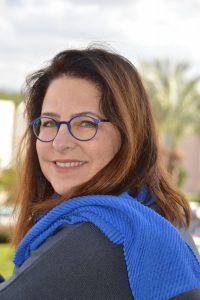
Prof. Lilach Rosenberg-Friedman
As a young adult seeking to decide what to do with my life, I thought the best course of action was to pursue a subject that interested me – History in general, and the history of Israel in particular – even if I had no idea where it would lead me professionally. I was lucky: my hobby become my career and I found my academic home in the Department of Land of Israel Studies and Archaeology at Bar-Ilan University.
During my undergraduate studies therein, I fell under the spell of the multidisciplinary approach—cross-fertilization across diverse bodies of knowledge and between the classroom and field study. These intersections were not only fascinating but also created a social-science buzz that fostered innovation and excellence. The belief in integrative studies as a motivator within a unique learning environment still guides me today in my post as Head of Department.
As an undergraduate, I also participated in a seminar on the history of women in Israel. Still in its infancy at the time, I had no idea that this field would become the central axis of my research. My findings have revealed hitherto unknown aspects of local history, women’s stories shedding new light on general history and providing new, fuller and more complex accounts—the very purpose of multidisciplinary study.
Over the years, I have focused my attention on the nature of Yishuv society, exploring themes relating to women, gender, the family, marriage, childbirth, and motherhood. These reflect the way in which Jewish society in Israel was simultaneously rooted in tradition and influenced by the spirit of the modern West. The pervading sense of nationalism intensified the various attitudes adopted, leading to conflicting processes.
This insight illustrates my worldview as a social historian, which I seek to instill in my students: history is not only interesting in its own right but is also essential for understanding reality. My research deals with affairs that figure largely within present-day Israeli discourse. Illuminating these from an historical viewpoint gives them depth. When we look backwards, we see things in perspective, discovering what was accomplished and what still remains to be achieved. This is true of history in general and the history of women in particular.
Alongside my focus on research, excellence, and innovation I also attach great importance to teaching and supervising, seeking to impart to my students my belief that the keys to good scholarship are openness and humility. I frequently say that although I chose a field of study that particularly interested me, at the time I did not understand what I do today—namely, the extent to which work in the humanities is essential for fostering creative thought, which in our day and age appears to be the path to success.
